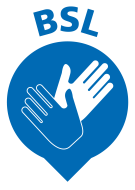North East Ambulance Service (NEAS) is launching a new British Sign Language (BSL) Relay Service to help ambulance crews care for Deaf and British Sign Language users.
From May 2024, all ambulances have access to an iPad with the SignVideo app, which will allow staff to access the video relay service to speak to Deaf and BSL patients.
Ambulance crews will be able to use the app 24 hours a day, 365 days of the year to talk to patients through a video interpreter, helping them assess the patient’s condition and understand the next steps of their treatment.
It is estimated that there are around 151,000 people in the UK who use British Sign Language and, of these, 87,000 are Deaf. This on-demand service allows BSL users to improve our communication and response in emergency situations. This includes asking lifesaving questions in emergency situations as well as being used in non-emergency situations, such as our community engagement teams providing advice and training.
Mark Johns, engagement, diversity and inclusion manager at NEAS, said: “As an emergency service, we are committed to delivering high quality patient care and making sure all patients receive prompt and effective communication during emergency situations.
“Although our health advisors have access to BSL relay to support patients over the phone, we know our crews and Deaf/BSL patients sometimes face communication barriers. This partnership with SignVideo means that when a patient who is Deaf or uses BSL, we are able to triage and communicate more easily.”
Rachel Austin, coordinator from Hartlepool Deaf Centre said: “Deaf BSL users struggle to access the ambulance service and many other services because of the communication barriers and the lack of support and assistance that is available.
“It’s great to see this new service being introduced by NEAS as it will hopefully remove a barrier that people experience and provide a useful tool to support Deaf BSL users and paramedics to communicate with each other in challenging and difficult circumstances. It will help to save more lives, ensure people get the best outcome and help achieve equality between Deaf and hearing people.”
Training for frontline staff will take place over the next 12 months and be complete by Spring 2025.

